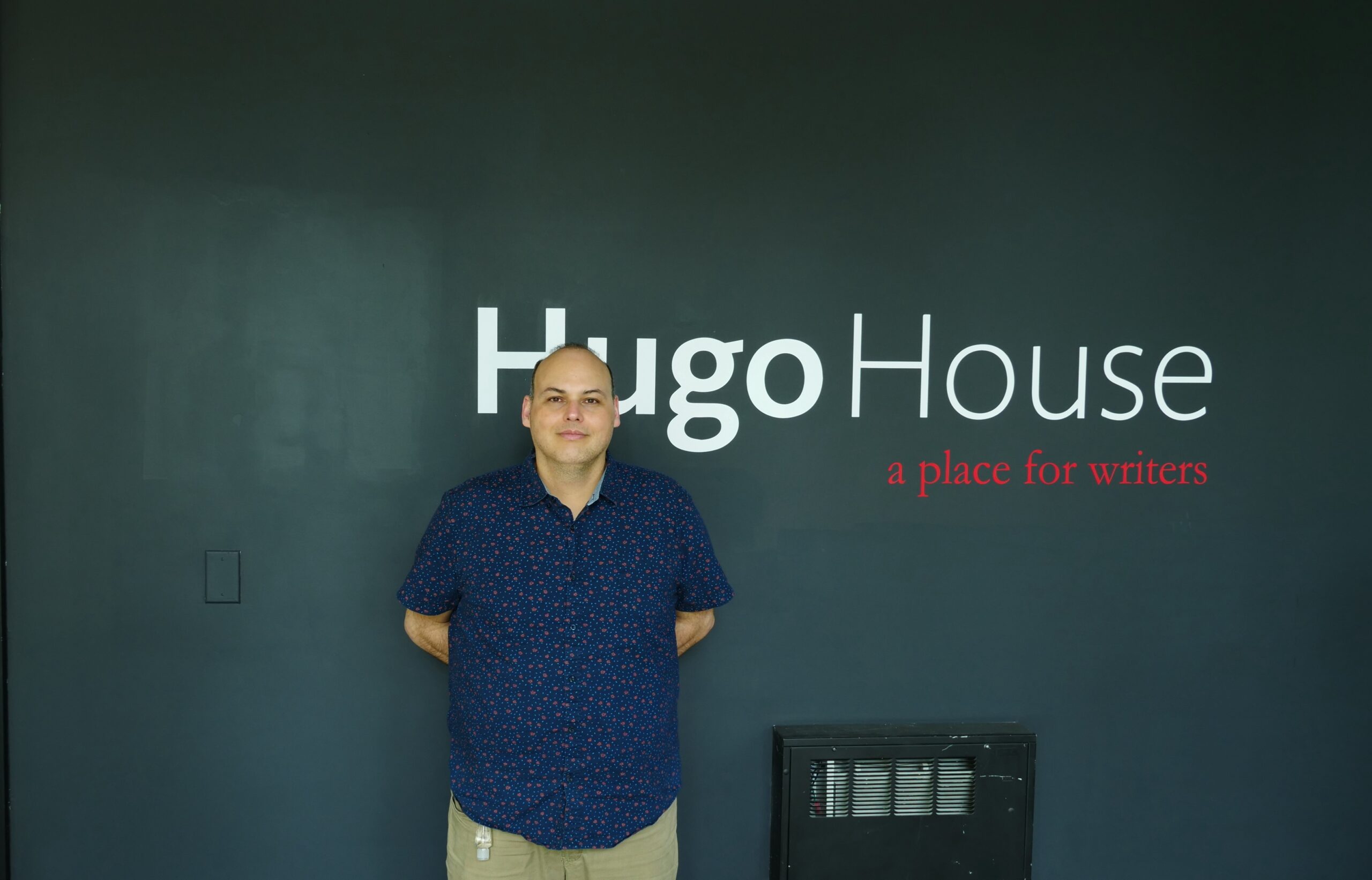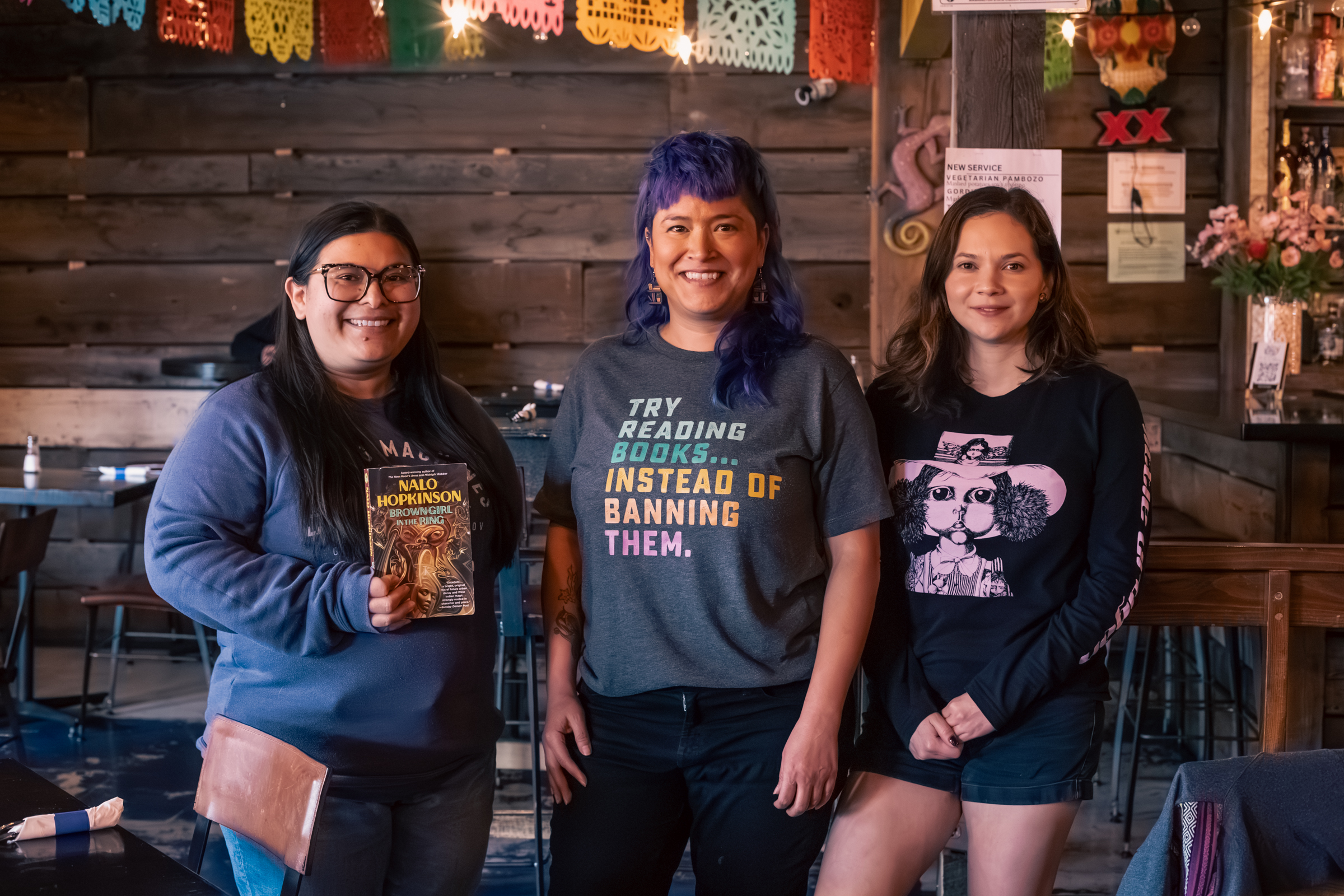Alvaro Saar Rios’ “Luchadora!” is a colorful, vibrant retelling of the story of Hua Mulan, a Chinese folk heroine who pretends to be a man in order to take her father’s place in war. The play follows Lupita, a young Latina who trains to take her father’s place in a lucha libre competition.
“Luchadora!” was performed by Seattle Children’s Theatre earlier this year. The show was infused with Latinx actors in every aspect of its production and was generally well-received by critics.
But in Seattle and elsewhere, creators of Latinx theater like this face a difficult challenge in bringing their productions to a largely monolingual community while also serving the Spanish-speakers whose cultures and language are being represented onstage.
“The majority of the time, the theaters that I’m writing for don’t usually have a large Brown population or even a diverse population,” said Texican playwright Alvaro Saar Rios, the writer of “Luchadora!” “As much as I love for the Latino community to be there, I also have to be aware of who that theater traditionally presents stories to, and I want them to feel welcome too.”


According to 2022 census data, only 4.8% of Seattle residents speak Spanish at home. Portraying language in a manner that is both true to its origins and understandable to diverse audiences becomes a delicate balancing act.
“I’ve seen many bilingual theaters where they’ll say the word, and they’ll say the sentence in Spanish, and then they’ll say it in English,” said Rios. “For bilingual people, you’re just hearing this thing double all the time. I think that’s a wasted opportunity.”
“I integrate Spanish and English,” continued Rios. “I think there’s a way that you can be able to write, and use different languages, and even if someone’s not familiar with the language, to be able to still understand it.”
Because almost all live theater in Seattle is primarily in English, even shows like “Luchadora!” that are centered around Spanish-speaking characters may be inaccessible to Spanish monolingual audiences.
“We have quite a large population of Latine audiences who don’t speak English, and so are not going to come to the theater to see a play in English,” said Julieta Vitullo. Vitullo is a resident playwright and dramaturg at eSe Teatro, a Seattle theater organization for Latino and Latina artists.
“It’s a struggle for everybody in Seattle to bring people to the theater as is, and then add on the language barrier, and it makes it harder,” she said.
However, progress is being made to bring more languages to live theater.
“A lot of theater companies in town have made great strides towards figuring out how to make their shows accessible to people in lots of different ways,” said Beth Pollack, a Chicana actress who played Lupita in Seattle Children’s Theatre’s “Luchadora!”
“A lot of places are looking into captioning and other interpretive services. Spanish is a very big part of that,” said Pollack.

People at the forefront of these efforts include Maria Manness, Washington Ensemble Theatre’s managing director. In 2022, Manness managed a Spanish-captioning initiative that brought translations to Book-It Repertory Theatre’s “In the Time of the Butterflies” and Sound Theatre’s “Cloud Tectonics.” She has since overseen the captioning of Washington Ensemble Theatre’s most recent productions, translated by production manager Antonieta Carpio.
“It’s about access. It’s not really about the language at all,” said Manness. “If you’re going to tell a story about a certain audience or demographic, you’re also welcoming them into that space.”
In order to caption a show in Spanish, theater companies must first obtain the rights to translate that show. They must then work with a translator to translate the text in a form that preserves the playwright’s intended meaning. Finally, the captions are organized and displayed on a screen facing the audience.
“There’s no excuse to not try it,” said Manness. “I think that it’s super accessible. There’s support for it in the city. There’s a small team of people who have all experienced it and done it before now.”
Both Manness and Carpio believe the future of Spanish captioning is bright, as more companies have offered the service in recent years. But progress doesn’t stop there, and advocates are already looking forward to even more inclusive theater spaces that aim to offer more languages and new ways to experience translations.
“I would love resources around audio captioning,” said Carpio. “To hire Spanish speakers to perform the play in an audio format… where you can experience theater in the same way instead of having to actively be reading captioning.”
Carpio said that theater-goers have a role in supporting the development of Spanish-language captioning.
“Our constituents are in charge of the type of work that we produce in the long term,” said Carpio. “Being able to voice what they’re interested in seeing, or what they need to be able to see it, is king. That only makes a more collaborative theater escape that is more reflective of the actual seat of the Seattle community.”
While there’s still work to be done, advocates say the benefits of experiencing live theater should be shared with members of all cultures and backgrounds, regardless of language.
“It really is an extraordinarily meaningful community and it can be a very cathartic space to be in,” said Pollack. Live theater is a place to feel big feelings in a safe way, to explore versions of our lives that we may not be able to have as an everyday part of our lived experience, and to meet other people who value the same things that we do.”
Cover Photo: Actors perform in Washington Ensemble Theatre’s 2023 production of “Our Dear Dead Drug Lord.” The play follows a group of teen girls who meet in a treehouse to summon the ghost of Pablo Escobar, and this production offered two Spanish-captioned performances. (Photo by Marcia Davis)

Connor Zamora is a third-year student at the University of Washington pursuing a degree in Journalism and Public Interest Communications with minors in Drama and Environmental Studies. He feels passionately about storytelling, and has a particular interest in environmental, art, and social justice stories.
Publisher’s Notes: Washington Latino News and a class in the Journalism and Public Interest Communication program at the University of Washington are partners in best serving the Hispanic and Latino communities.




